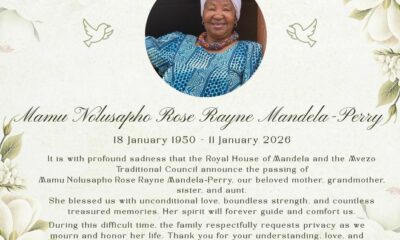Culture Craze
Ngũgĩ wa Thiong’o Dies at 87: The Literary Warrior Who Reshaped African Storytelling

Ngũgĩ wa Thiong’o, the Kenyan novelist, essayist, and trailblazing voice in African literature, has died aged 87. With a literary career spanning over six decades, Ngũgĩ was more than just a writer – he was a cultural revolutionary who reshaped African storytelling by reclaiming language, identity, and history.
Also read: Remembering Presley Chweneyagae: South African Star of Tsotsi Dies at 40
Born in 1938 during Kenya’s colonial rule, Ngũgĩ (formerly James Ngugi) grew up amidst the turbulence of the Mau Mau uprising, a struggle that would later inform much of his early work. His debut novel, Weep Not, Child (1964), the first English-language novel published by an East African, introduced readers to a voice deeply intertwined with the trauma and hope of a nation in transition.
From there, his bibliography flourished with acclaimed works like The River Between, A Grain of Wheat, and Petals of Blood. But 1977 marked a pivotal shift – Ngũgĩ renounced colonial languages and committed to writing in Kikuyu, his mother tongue. His bold decision challenged the dominance of European languages in African literature and became a cornerstone of his ideology, famously expressed in his critical essay collection, Decolonising the Mind.
That same year, Ngũgĩ was arrested without trial for co-writing a politically charged play in Kikuyu, I Will Marry When I Want. Imprisoned for a year, he used toilet paper as his writing medium to pen Devil on the Cross – a radical act of literary defiance.
After his release, Ngũgĩ faced exile following threats against his life. He lived in the UK and the US, eventually becoming a professor at the University of California, Irvine. Yet, even abroad, his heart remained tethered to Africa. His later works, such as Wizard of the Crow and The Perfect Nine, continued to critique post-colonial governments and celebrate African mythologies.

Image 1: Facebook/Onesimus Kipchumba Murkomen
Despite decades of global admiration and multiple Nobel Prize predictions, the honour eluded him. Still, Ngũgĩ’s influence was undeniable. He advocated for the elevation of African languages in literature and questioned the assumption that African stories needed to be told in English or French to be valid.
In 2021, he became the first author nominated for the International Booker Prize for a book written and self-translated from an indigenous African language – a powerful full-circle moment.
Ngũgĩ’s final years were marked by declining health, including a heart bypass surgery and kidney failure. Yet, his voice never faltered. Even in adversity, he championed the resilience of the human spirit. “Resistance is the best way of keeping alive,” he said in a 2018 interview.
His passing was announced by his daughter Wanjiku wa Ngũgĩ, who called him a man who “lived a full life, fought a good fight.” His son, fellow author Mukoma wa Ngũgĩ, wrote, “I love him – I am not sure what tomorrow will bring without him here.”
Ngũgĩ wa Thiong’o is survived by nine children, four of whom are published authors, and by countless readers across the globe who saw their own histories, struggles, and hopes in his words.
As South Africans, and Africans more broadly, reflect on his legacy, one truth endures – Ngũgĩ wa Thiong’o didn’t just write stories. He rewrote the narrative of an entire continent.
Also read: Darren Scott’s Final Sign-Off: A Tribute to a South African Radio Legend
Follow Joburg ETC on Facebook, Twitter , TikTok and Instagram
For more News in Johannesburg, visit joburgetc.com
Source: BBC, The Guardian
Featured Image: Inkl



























